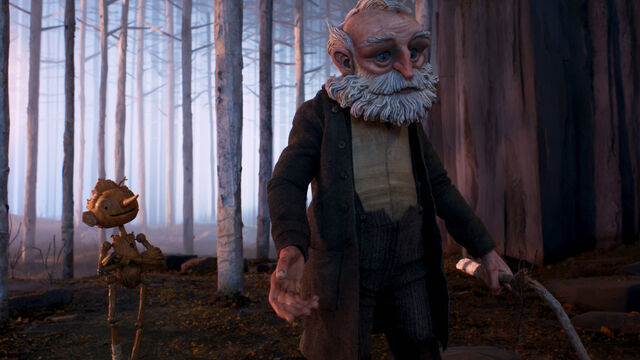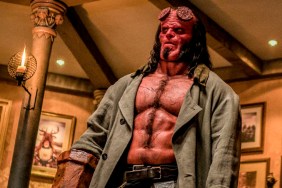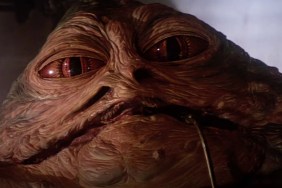Disney’s live-action remake of its own 1940 Pinocchio animated feature didn’t exactly reinvent the wheel when it hit Disney+ last month. But Guillermo del Toro’s upcoming gothic spin on Carlo Collodi’s original novel seems to be a different beast altogether. The new film, co-directed by Mark Gustafson, notably marks del Toro’s first-ever animated movie. Regardless, it shares a common narrative thread with some of his most critically-acclaimed live-action projects.
At a recent promotional event (via The Hollywood Reporter), del Toro discussed one key difference that sets his Pinocchio apart from earlier versions. Most adaptations usually take place around the same time that Collodi’s novel was published in 1883. However, del Toro chose to set his film during Italian dictator Benito Mussolini’s fascist regime in the 20th century. Del Toro isn’t a stranger to including real-life periods of national turmoil in his films. Case in point: The Devil’s Backbone and Pan’s Labyrinth took place during and after the Spanish Civil War, respectively. But with Pinocchio, the sociopolitical climate allowed him to tell the wooden puppet’s story in a bold new way.
“The three movies are to do with childhood coming up against something that has to do with war and violence,” said del Toro. “I think for me, it’s always been the movies about fatherhood and being a father or being a son. And I think in those iterations, fascism seems to be concerned with a father figure of a different kind, and the desire to deliver ourselves to a father that unifies thought. So I think it’s both a background and it is something interesting thematically.”
RELATED: Guillermo del Toro Offers Behind-the-Scenes Peek at His Pinocchio
This might not be the only way del Toro intends to break from tradition. In fact, it sounds like we can expect a much different fate for the film’s title character.
“For me, there is Carlo Collodi’s Pinocchio, there is Walt Disney’s Pinocchio, and there’s Guillermo del Toro’s Pinocchio,” continued del Toro. “Because to me, the interesting thing was: Can I make a Pinocchio that celebrates disobedience as opposed to celebrating obedience? Can I make a Pinocchio in which he doesn’t have to turn into a real boy at the end because he was obedient?”
Pinocchio will premiere on Netflix on December 9.
What do you think of del Toro’s goals for the movie? Let us know in the comment section below!
Recommended Reading: The Adventures of Pinocchio
We are also a participant in the Amazon Services LLC Associates Program. This affiliate advertising program also provides a means to earn fees by linking to Amazon.com and affiliated sites









